Ex-AL leader, another get death penalty
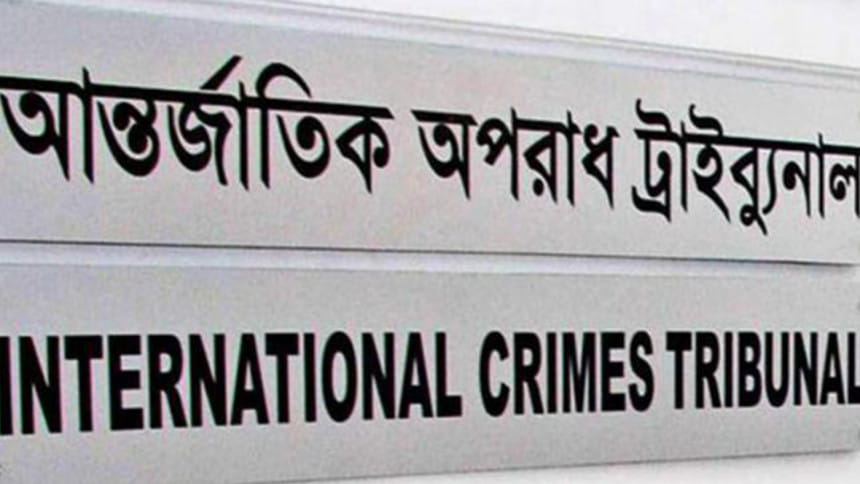
The International Crimes Tribunal-1 yesterday found two people, including a former leader of Habiganj Awami League, guilty of crimes committed during the Liberation War in 1971 and sentenced them to death.
The convicts were awarded the punishment for their direct involvement in genocide and crimes against humanity perpetrated in three upazilas -- Lakhai of Habiganj, Nasirnagar of Brahmanbaria and Astogram of Kishoreganj.
Liakat Ali, 63, former president of Lakhai upazila AL, and Aminul Islam alias Rajab Ali, 62, of Astogram upazila, are now on the run.
Liakat was a commander of local “Razakar Bahini” and Aminul a commander of local “Al-Badr Bahini”. They, however, used to move together in the localities and had a nexus with the Pakistan army stationed in Astogram. Both Razakar and Al-Badr Bahini were auxiliary forces of the Pakistan army in 1971.
“The accused are found to have had culpable and physical participation in the commission of barbaric crimes which indisputably shock the humanity,” the three-member tribunal said.
Tribunal Chairman Justice Md Shahinur Islam, and members Justice Amir Hossain and Justice Md Abu Ahmed Jamadar read the summary of 312-page judgment in the presence of the victims' families, the prosecution and the defence.
CONVICTS' IDENTITY, ROLE
A college student in 1971, Liakat, son of Khelu Mia of Lakhai, was involved with the Muslim League, along with his maternal uncle, according to case documents.
During the Liberation War, his uncle became the chairman of Fandauk Union Peace Committee, an anti-liberation force, in Nasirnagar upazila, while he led the union's “Razakar Bahini”.
Liakat committed the crimes with the assistance from the Pakistan army and went into hiding after the war. He later got involved in AL politics and was the president of Lakhai upazila AL from 2003 to 2013.
He hid again when investigations against him began in November 2014. He is believed to be in the US, according to investigators.
Meanwhile, Aminul, son of Abdul Goni Munshi of Astogram, was the president of Islami Chhatra Sangha's Haji Hasmat Ali College unit in 1970. He formed the “Al-Badr Bahini” with the activists of Chhatra Sangha, the then student body of Jamaat, in Astogram during the war, read the case documents.
He perpetrated the atrocities in collaboration with the Pakistan army. Freedom fighters caught him towards the end of the war.
Three cases were filed against him under the Collaborator Act, 1972, and he was given the life sentence but was released in 1981 after the political changeover.
“The self-proclaimed criminal” even wrote a book titled “Ami Al-Badr Bolchi” after his release.
Prosecutor Rana Dasgupta said they were satisfied with the verdict as for the first time all convicts were found guilty of all charges and handed death sentences in all seven charges.
Jumman Mia, son of martyred Rangu Mia and also prosecution witness, demanded that the government find the convicts and execute the verdict.
Punishment of convicts would be executed once they surrendered before a court or were arrested.
State-appointed defence counsel Gazi MH Tamim said he was aggrieved over the “perverse judgment” under the “black law”.
With the latest verdict, the war crimes tribunals have so far delivered 35 judgments against 80 people. Fifty-four of them have been sentenced to death.
CRIMES, PUNISHMENT
The tribunal found the duo guilty of all seven charges framed against them and handed down death penalty for all charges.
The charges are: four acts of genocide -- killing of 43 Hindu people in Krishnapur, nine Hindu people in Chandipur, 26 Hindu people in Gadainagar and eight Hindu people in Krishnapur, Chandipur and Gadainagar of Lakhai.
The three charges of crimes against humanity are: killing of one Rangu Mia in Nasirnagar, five people in Sabiyanagar in Astogram, and 10 others in the same village.
'HONOUR BANGABANDHU'S SPEECH'
The tribunal said in a speech in Mymensingh, Bangabandhu Sheikh Mujibur Rahman on April 5 in 1972 said local perpetrators of wartime crimes would have to face trial.
But the ICT Act remained ineffective as no initiative was taken to form a judicial forum under this act after the assassination of Bangabandhu and his family members, it said.
“Now, in coming out from the culture of impunity, the nation must honour the firm and moral intent of the father of the nation reflected in his above speech,” the court added.
'NO ABSOLUTION FOR CRIMES'
About Liakat's involvement with the AL after the Liberation War, the tribunal said subsequent act or sham allegiance to a pro-liberation party intending to hide his horrendous deeds does not absolve his liability of crimes he committed in 1971.

 For all latest news, follow The Daily Star's Google News channel.
For all latest news, follow The Daily Star's Google News channel. 

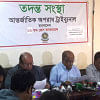
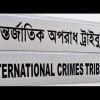
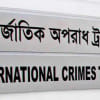
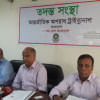
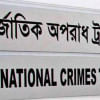


Comments